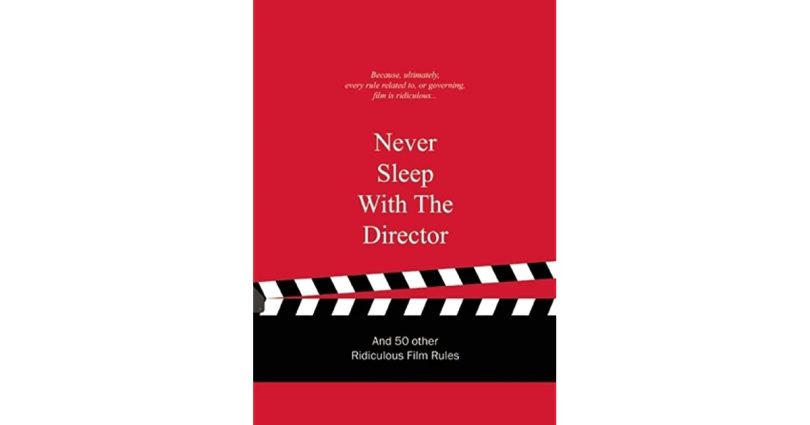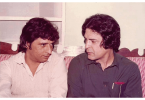A cover of Never Sleep With The Director and 50 other Ridiculous Film Rules. Photo: Good Reads
There are many ways to improve your skills but the one that is practical, easy and doable is to listen to the maestros who have ‘been there, done that’, in every possible way. Through Never Sleep With The Director and 50 other Ridiculous Film Rules, you get to know at least 51 new things about filmmaking, with valid quotes from experienced filmmakers. Well, don’t be intimidated with the title, it’s the content that matters, and that’s sort of one of the many rules discussed within these pages.
If you ever wondered how British filmmaker Alfred Hitchcock would have reacted had he been asked to direct his version of Cinderella, or what Meryl Streep would have said about roles drying up in the later part of an actress’s career, think no more. This book caters to the fans of all those actors and filmmakers who have helped make cinema one of the fastest-growing industries in the world.
From the likes of legendary filmmaker Akira Kurosawa to Ridley Scott, the book brings comments from the best of the best, so that you can closely know more about filmmaking than you think you already know. Yes, director Billy Wilder’s version might be different from Woody Allen’s, or some actors might feel comfortable with being typecast, but it is their reasoning behind those statements that matter.
The author/editor Anneloes Van Gaalen must be commended for picking up the most interesting quotes from writers, directors, and actors from around the world, and presenting them in a way that they make up the 51 rules of filmmaking. These rules might not be the definitive ones, for breaking the rules, is the final rule in the book, yet they give any aspiring filmmaker an idea of how cutthroat the world of entertainment is, and why filmmakers don’t care what the critics have to say. For some, the audience’s word is final, whereas others believe in their friends’ opinion, and that’s what they preach through their comments here.
This book offers some humour, for instance, there is an interesting comparison between Billy Wilder’s Aunt Millie and Marilyn Monroe that will make you laugh out loud, for the director explains why one is made for films, and the other isn’t. A whole chapter is dedicated to the act of ‘answering the phone and the importance of an editor in a film; this book also tells the readers that at one time, editing was considered a woman’s job like knitting, until men realized that it was an important part of the filmmaking process and needed his attention too.
Moreover, some directors rubbish the importance of continuity in films and even defend their contemporaries by claiming that before the advent of VCR and DVD, people used to watch a film once or twice. However, even some of the directors from the golden era have things to say, regarding the significance of a good script, the actor’s punctuality, and how they felt about the old Hollywood Production Code.
Some young and coming filmmakers might wonder why certain directors like Quentin Tarantino, David Lynch, and Steven Spielberg do things on their terms and way, and what makes their films different from others. Never Sleep With The Director and 50 other Ridiculous Film Rules explains the rationale behind these prolific filmmakers, and don’t be surprised to find out that a lot of hard work, patience, and man management are some of the reasons behind their success.
It also reminds the readers that no matter what happens, some rules will stay around forever including the one about a memorable entry, knowing the lines, dividing a film into three parts, and getting someone else to edit the final product, to name a few. Some of the rules like the ones about sequels and the happy endings might have evolved but the comments about them remain valid because they came from the filmmaker’s mouth. Add to that the thirty-six coloured photographs and illustrations in the book and you have something to please both the eyes and mind, within your grasp.
As for the suggestive title, well it’s the first rule of the book where the author explains the pros (less) and the cons (more) of dating or having a romantic relationship with a colleague. It hasn’t helped many, and it will not help you, because, without talent, you can only go to a certain level. Don’t be surprised to find out how little some directors think of critics, and how big Quentin Tarantino believes his films are, as he makes it for the planet Earth, not just Americans.







